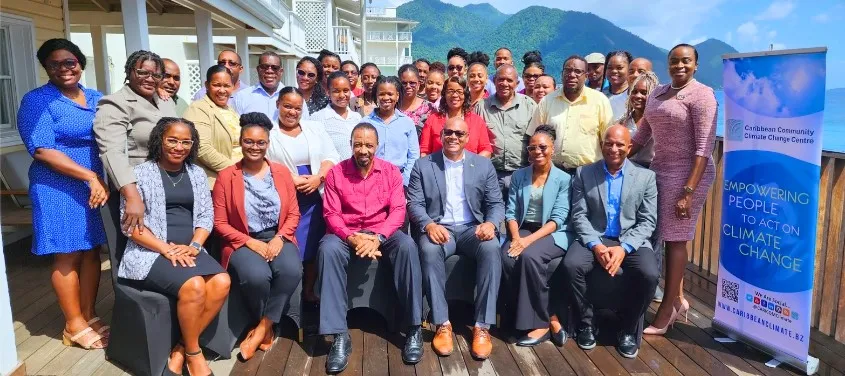Prime Minister Mia Mottley delivered the speech at COP26 that all negotiators from Small Island Developing States (SIDS) have been waiting and yearning to hear a SIDS head of government deliver on our behalf for years. She hit on all the right points, she spoke with the authority and confidence of someone who understood the subject, she commanded the stage and she delivered with a passion and eloquence that caused every international leader and celebrity in the audience to listen with rapt attention.
Unfortunately, despite being described as “the moral conscience of the negotiations”, the “canary in the coal mine of climate change”, “the citizens at ground zero in the fight against climate change”, SIDS continue to have to fight tooth and nail to get the smallest concessions from the rich industrialized nations that caused the climate crisis. These countries repeatedly demonstrate an unwillingness to reduce their emissions of greenhouse gases. Instead, they provide subsidies to the fossil fuel industry: US$3.3 trillion in subsidies have been provided to the oil, gas and coal industry by the G20 countries since the Paris Agreement was adopted in 2015. This is why, instead of limiting the global warming to the 1.5 degrees Celsius goal of the Paris Agreement, we are on track for a 2.7 degrees Celsius warming, which will have catastrophic consequences for our countries.
The developed countries make promises to provide the financial support that our countries need to adapt to the devastating impacts of climate change. However, instead of the US$100 billion per year they promised, they have delivered at most US$80 billion, and most of that money has gone to mitigation, and not adaptation. Worse yet, 80% of the funds disbursed have been in the form of loans. So, we have to borrow money from the countries that caused the crisis in order for us to respond to the crisis. It is estimated that by the end of this decade, developing countries will need between US$140 and US$300 billion per year to adapt to the impacts of climate change, and that does not take into account the impacts from loss and damage due to extreme events like hurricanes, or slow onset events like sea level rise or ocean acidification.
The time has come for us to explore other options. Annual climate change meetings that spend hours pitting developing country negotiators against large developed country delegations in a fight to get text in COP decisions that reflect the scary urgency of our situation, only to be followed by weak action and ambition by these developed countries to address the problems, will not get us to 1.5 degrees Celsius, neither will it get us the large amounts of grant or concessional financing we need to build resilience into our societies and our economies. COP meetings cannot and should not be the only tool in our arsenal.
